Economic Investment

What is the relationship between interest rates and economic indicators ?
The text discusses the impact of interest rates on economic indicators such as inflation, unemployment, and GDP. It explains how higher interest rates reduce inflation and slow down economic growth by decreasing consumer spending and business investments, while lower interest rates stimulate borrowing, consumption, and investment, leading to increased inflation and economic growth. The article emphasizes the crucial role of interest rates in managing the economy effectively.

Are ESG investments more resilient during economic downturns ?
The text discusses the resilience of Environmental, Social, and Governance (ESG) investments during economic downturns. It defines ESG investments as those that prioritize sustainability, fair labor practices, and transparent operations. The importance of ESG criteria is highlighted in terms of risk management, stakeholder engagement, and long-term performance. The historical performance data suggests that ESG investments have performed comparably to non-ESG investments during previous economic downturns, potentially offering diversification benefits. The impact of ESG factors on resilience is discussed, including environmental factors, social factors, and governance factors. However, risks and challenges such as market sentiment and liquidity issues are also mentioned. The conclusion emphasizes that ESG investments have shown resilience during economic downturns due to their focus on long-term value creation and risk management strategies. It suggests that a well-diversified ESG portfolio can provide a balance between financial returns and positive social and environmental impacts, even during challenging economic times.

How does gold investment work ?
Gold investment is a popular way to diversify your portfolio and hedge against inflation, offering various forms such as physical gold, ETFs, mutual funds, mining company stocks, futures, and options. It provides benefits like hedging against inflation, portfolio diversification, and acting as a safe haven during crises but also involves risks including price volatility and storage costs. To start investing in gold, one should educate themselves, determine their investment goals, choose the right type of investment, allocate a budget, research vendors/brokers, and monitor their investment.

What is the future outlook for gold investment ?
The future outlook for gold investment is influenced by various factors such as economic conditions, monetary policy, supply and demand dynamics, and investor sentiment. Economic uncertainty can drive up the demand for gold as a safe-haven asset, while periods of growth may decrease its value. Central banks' interest rate decisions and money supply changes can also impact gold prices. Supply and demand dynamics, including mining production and jewelry demand, play a role in determining gold availability and price. Finally, investor sentiment towards gold can be shaped by market trends, investment strategies, and overall risk appetite. By monitoring these key factors, investors can make informed decisions about the viability of gold as a portfolio addition in the coming years.

How do I adjust my investment strategy during economic downturns ?
Adjusting Investment Strategy During Economic Downturns: - **Diversify Your Portfolio**: Allocate across stocks, bonds, and cash equivalents; invest in different sectors and international markets. - **Rebalance Your Portfolio**: Monitor performance and composition regularly; rebalance to maintain diversification. - **Focus on Quality Stocks**: Choose companies with strong financials, stable earnings, and resilient business models. - **Consider Bonds and Other Fixed Income Securities**: Invest in government, corporate, or municipal bonds for stability and potential returns. - **Stay Disciplined and Avoid Emotional Decisions**: Stay calm, focus on long-term goals, and avoid herd mentality.

What are some good retirement investment options ?
The text discusses various retirement investment options including 401(k) plans, individual retirement accounts (IRAs), mutual funds, exchange-traded funds (ETFs), and real estate investment trusts (REITs). It explains the benefits and limitations of each option.

How does clean energy investment compare to traditional energy investment ?
Investing in energy sources is crucial for the development and growth of any economy. However, the choice between clean energy investment and traditional energy investment has become a significant topic of discussion in recent years. This comparison will explore the differences between these two types of investments, focusing on their costs, benefits, and potential impacts on the environment and society.
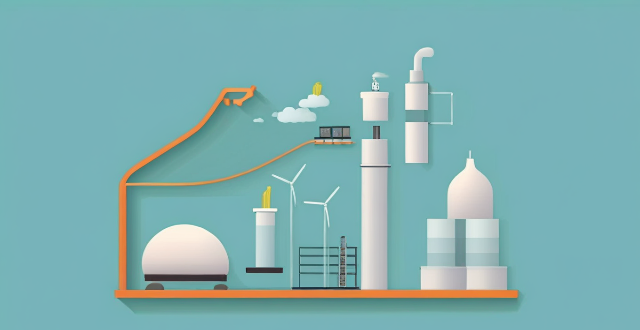
What is the average return on investment for private equity ?
Private equity (PE) investments can offer attractive returns, but these are influenced by several factors. The success of the companies in which PE firms invest, market conditions, investment strategy, and timing all play a role. Historically, PE has delivered average annualized returns of 12-15%, though these can be volatile. It's important for investors to understand the J-curve effect, fees, and the benefits of diversification when considering PE investments.

What is an economic stimulus plan ?
An economic stimulus plan is a government policy aimed at boosting a country's economy during times of slow growth or recession. The primary goal of such plans is to increase consumer spending, encourage business investments, and create jobs, thereby stimulating economic activity and promoting overall growth. Key features of an economic stimulus plan include tax cuts and rebates, government spending on infrastructure projects, monetary policy adjustments, direct assistance to businesses and individuals, and incentives for investment. Benefits of an economic stimulus plan include increased economic growth, job creation, long-term gains, and reduced poverty rates. However, potential downsides of an economic stimulus plan include national debt, inflation risks, crowding out effect, and short-term vs long-term effects. In conclusion, an economic stimulus plan is a multifaceted approach employed by governments to revive flagging economies. While these plans can have significant positive impacts on growth, employment, and overall well-being, they must be carefully designed and implemented to minimize potential drawbacks such as increased national debt and inflation risks.
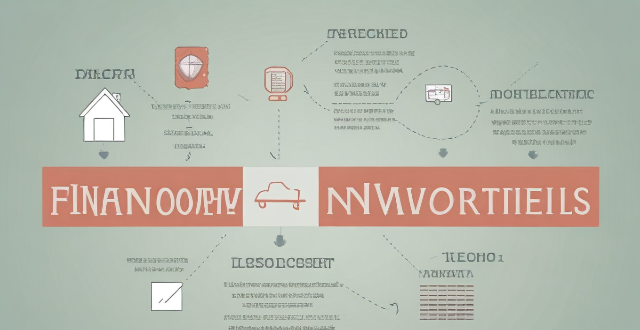
How can improving financial knowledge contribute to better investment decisions ?
Improving financial knowledge is crucial for better investment decisions. It increases understanding of options, improves risk management, boosts analytical skills, fosters a long-term perspective, and increases confidence in choices.

How does gold investment compare to other types of investments ?
This article compares gold investment with other types of investments, such as stocks, bonds, real estate, commodities (other than gold), and cryptocurrencies. It highlights the advantages and disadvantages of each type of investment, emphasizing that the choice of where to invest depends on individual goals, risk tolerance, and market conditions. The article also suggests conducting thorough research and seeking professional advice before making any investment decisions.

How do I know if gold investment is right for me ?
Investing in gold can be a great way to diversify your portfolio and protect yourself from market volatility. However, it's important to consider whether this type of investment is right for you. Here are some factors to consider: Risk Tolerance: Gold is generally considered a safe haven asset, meaning that it tends to hold its value during times of economic uncertainty. However, like any investment, there is always some degree of risk involved. You should only invest in gold if you are comfortable with the potential risks and volatility of the market. Investment Goals: Are you looking to grow your wealth over time, or are you more interested in preserving your current assets? Gold has historically been a good store of value, but it may not provide the same growth potential as other investments. Consider your long-term goals and whether gold aligns with them. Market Conditions: The performance of gold can vary depending on market conditions. For example, during times of inflation or economic turmoil, gold may perform well as investors seek out safe haven assets. Keep an eye on market trends and conditions before making any decisions about investing in gold. Costs and Fees: Investing in gold can come with various costs and fees, including storage fees, insurance costs, and transaction fees. Make sure you understand all of these costs before investing. Additionally, consider the impact of taxes on your gold investments. Liquidity: While gold is generally considered a liquid asset (meaning it can be easily bought and sold), there may be times when it is difficult to find buyers or sellers at desirable prices. This could affect your ability to access your funds quickly if needed. Consider how much liquidity you need in your portfolio before investing in gold.

What are the key indicators of economic recovery ?
Economic recovery is a complex process that involves several key indicators. These indicators are used to gauge the health and growth of an economy after a period of decline or recession. Some of the most important indicators of economic recovery include GDP growth, employment rates, consumer spending, business investment, the housing market, inflation rates, trade balance, and stock market performance. Each of these indicators provides valuable insights into the overall health and growth of an economy.

What is the relationship between energy prices and economic growth ?
The interplay between energy prices and economic growth is multifaceted, with each influencing the other in various ways. High energy prices can impede economic expansion by escalating production costs, diminishing consumer purchasing power, and fostering inflation. They might also spur investment in alternative energies and drive resource reallocation towards efficiency, counterbalancing some of their immediate negative impacts. Conversely, robust economic growth often amplifies energy demand, propelling prices upwards unless compensated by enhanced supply or technological advancements that boost efficiency. This intricate relationship underscores the importance of strategic policy interventions to manage energy pricing dynamics for sustainable economic development.

What are the benefits of implementing an economic stimulus plan ?
An economic stimulus plan is a set of policies designed to boost a country's economy during times of slow growth or recession. These plans are typically implemented by governments and can have a range of benefits, including increased economic activity, improved employment rates, stimulated investment, reduced inflation risk, and improved public services. By taking steps to boost the economy during times of slow growth or recession, governments can help to create a more stable and prosperous future for all citizens.

What are the best financial products for long-term investment ?
The text provides a comprehensive overview of the various financial products available for long-term investment. It explains the definition, benefits, and risks of each option including stocks, bonds, mutual funds, ETFs, and REITs. The text emphasizes the importance of considering one's investment goals, risk tolerance, and financial situation before choosing which products to include in a portfolio. Overall, the text serves as a useful guide for individuals looking to make informed decisions about their long-term investments.
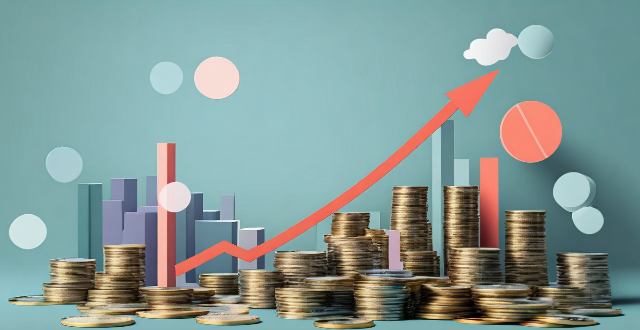
Can economic indicators accurately predict a recession ?
Economic indicators, such as GDP growth rate, employment rate, inflation rate, interest rates, consumer sentiment, and manufacturing/service sector activity, are used to gauge the health of an economy. While these indicators provide valuable insights, their ability to predict a recession is not absolute due to limitations like lagging indicators, false signals, external factors, and policy responses. A combination of indicators and a probabilistic approach can improve accuracy in predicting economic downturns.

How do global economic trends affect personal wealth growth strategies ?
Global economic trends significantly influence personal wealth growth strategies by affecting factors such as interest rates, inflation, economic growth, global trade, and political stability. Understanding these trends helps individuals make informed decisions about investments and financial planning.
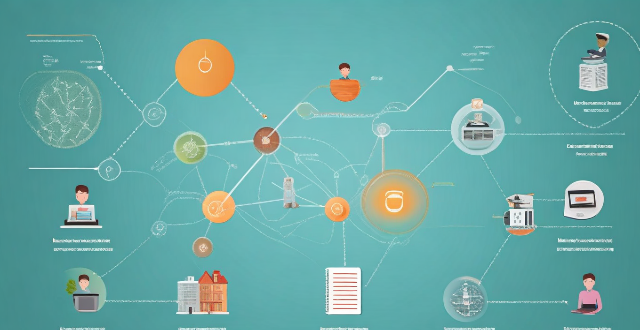
How do private equity firms identify potential investment opportunities ?
Private equity firms use various methods to identify potential investment opportunities, including networking and relationship building, direct outreach, industry analysis, competitive intelligence, financial analysis, deal sourcing platforms, strategic partnerships, tracking M&A activity, and event-driven opportunities. These methods involve a mix of qualitative assessments and quantitative analysis to ensure a comprehensive approach to identifying viable targets for private equity investment.

How does economic recovery affect different industries differently ?
Economic recovery affects industries differently based on their reliance on consumer spending, investment, government policies, and global markets. Consumer discretionary sectors like retail and hospitality are highly sensitive to economic fluctuations but can rebound quickly with increased consumer confidence. The technology sector often remains resilient during downturns, with continued growth in segments like software and online services. Manufacturing may face challenges due to supply chain disruptions but can rapidly expand with demand recovery. Financial services benefit from improved credit conditions and increased lending activities. Healthcare is generally less affected by economic cycles and can grow with aging populations. Energy sector recovery depends on global demand and policy shifts towards renewable energy. Understanding these differential impacts is crucial for investors, policymakers, and businesses to navigate the changing landscape effectively.

Is it a good time to invest in gold ?
Investing in gold is a popular choice for many investors, but whether it is a good time to invest depends on various factors such as market conditions, economic indicators, and personal financial goals. Market conditions are influenced by supply and demand, geopolitical events, and monetary policies. Economic indicators like inflation rates, interest rates, and economic growth can also impact the appeal of gold as an investment. Personal financial goals should also be considered, including diversification, long-term investment, and risk tolerance. It is important to assess individual circumstances and risk tolerance before making any investment decisions, and consulting with a financial advisor can provide valuable guidance tailored to specific needs and objectives.
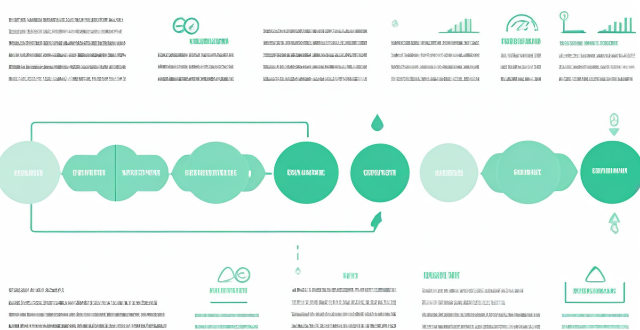
Which financial product offers the highest return on investment ?
Investing in financial products is a popular way to grow wealth, but with many options, it's hard to determine which offers the highest return on investment (ROI). This article explores popular financial products and their potential returns. The stock market offers high potential returns but also significant risks. Real estate can provide rental income and property appreciation, but comes with its own set of risks. Mutual funds offer professional management and diversification, but fees and expenses can impact returns. Cryptocurrencies have gained popularity as an alternative investment option, but are highly volatile and speculative, making them unsuitable for most investors seeking stable returns. Determining which financial product offers the highest return on investment depends on various factors, including risk tolerance, investment goals, and market conditions. Diversification across different asset classes and investment vehicles can help minimize risks and maximize returns over time.

What are the economic implications of enacting stringent climate change legislation ?
The article discusses the economic implications of stringent climate change legislation, which include job creation in renewable energy and green infrastructure sectors, potential increases in energy and food prices, new business opportunities in innovation and carbon trading, and investment in clean technology leading to economic growth. However, there are also short-term transition costs and job displacement issues. Despite these challenges, the long-term benefits such as improved air quality and increased resilience against natural disasters make the implementation of such legislation beneficial for future generations.

In what circumstances is an economic stimulus plan most necessary ?
An economic stimulus plan is most necessary during times of recession, slow economic growth, high unemployment rates, or financial crisis. These plans can help to boost economic activity, create jobs, and stabilize the financial system by implementing policies such as increasing government spending, reducing taxes, providing subsidies to businesses, encouraging investment in new technologies, expanding access to credit, investing in infrastructure projects, offering tax incentives for hiring new employees, and implementing regulatory reforms.

What is the outlook for the European Union's economic recovery ?
The economic recovery of the European Union (EU) depends on political stability, global economic conditions, and domestic policies. Unity among member states and effective governance are crucial for managing crises and implementing growth-promoting policies. Global trade dynamics and supply chain disruptions also play a significant role. Domestically, fiscal stimulus, structural reforms, and a balanced green transition are key. The outlook is optimistic but uncertain, with many influencing factors.

How do climate change negotiations affect global trade and economic systems ?
Climate change negotiations play a crucial role in shaping global trade and economic systems. These negotiations aim to find solutions to the challenges posed by climate change, such as reducing greenhouse gas emissions, promoting renewable energy sources, and protecting biodiversity. The outcomes of these negotiations have far-reaching implications for international trade, investment, and economic development. In this article, we will explore how climate change negotiations affect global trade and economic systems. One of the key impacts of climate change negotiations on international trade is the imposition of tariffs and subsidies on goods and services that contribute to climate change. For example, countries may impose higher tariffs on imported goods that are produced using high levels of carbon emissions or other environmentally harmful practices. Similarly, governments may provide subsidies to domestic industries that adopt sustainable practices or invest in renewable energy technologies. These measures can create trade barriers and distort market competition, affecting global trade patterns. Another way in which climate change negotiations can influence international trade is through the implementation of carbon pricing mechanisms, such as carbon taxes or cap-and-trade systems. These mechanisms aim to internalize the external costs of carbon emissions by making polluters pay for their emissions. As a result, companies that rely heavily on fossil fuels or produce high levels of emissions may face increased costs, making their products less competitive in global markets. On the other hand, companies that invest in low-carbon technologies or adopt sustainable practices may gain a competitive advantage. Climate change negotiations often lead to the adoption of stricter environmental standards and regulations at both national and international levels. These standards can affect international trade by creating compliance costs for exporters and importers. For instance, companies that export goods to countries with stringent environmental regulations may need to invest in cleaner production processes or face penalties for non-compliance. Similarly, importers may prefer to source goods from suppliers that meet certain environmental standards, affecting trade flows and market access. Climate change negotiations also have significant implications for investment and economic development. As countries commit to achieving ambitious climate targets, there is an increasing demand for green finance and investment in sustainable projects. This can create new opportunities for investors and businesses that focus on renewable energy, energy efficiency, and other low-carbon sectors. However, it can also lead to capital flight from traditional fossil fuel industries, affecting economies that rely heavily on these sectors. Climate change negotiations often include provisions for technology transfer and innovation cooperation between developed and developing countries. This can help bridge the gap between countries with different levels of technological capabilities and promote sustainable development worldwide. By facilitating the transfer of clean energy technologies and supporting research and development efforts, climate change negotiations can foster economic growth and job creation in emerging markets. Finally, climate change negotiations address the urgent need for adaptation financing and support for vulnerable communities affected by climate change. This includes funding for infrastructure improvements, disaster risk reduction, and other measures that help countries adapt to changing climate conditions. While these efforts are essential for protecting human lives and livelihoods, they also represent significant economic opportunities for businesses involved in climate resilience and adaptation services. In conclusion, climate change negotiations have far-reaching implications for global trade and economic systems. By imposing tariffs and subsidies, implementing carbon pricing mechanisms, setting environmental standards, promoting green finance and investment, facilitating technology transfer and innovation, and providing adaptation financing and support, these negotiations shape the future direction of international trade and economic development. As we continue to grapple with the challenges posed by climate change, it is crucial for policymakers, businesses, and civil society to work together to ensure that our responses to this global challenge are aligned with our collective goals for sustainable prosperity.

What role do governments play in promoting clean energy investment ?
Governments play a crucial role in promoting clean energy investment by implementing policies and regulations that encourage the development and adoption of renewable energy sources. These efforts are essential for reducing greenhouse gas emissions, mitigating climate change, and achieving sustainable economic growth. This article will discuss some of the key ways governments can promote clean energy investment. Governments can set ambitious renewable energy targets to drive the transition towards a low-carbon economy. By establishing specific goals for renewable energy generation, governments create a clear direction for the industry and provide certainty for investors. For example, governments can set national targets for the share of renewable energy in total energy consumption or electricity generation, or mandate that a certain percentage of electricity must come from renewable sources, encouraging utilities to invest in clean energy projects. Governments can offer financial incentives to attract private sector investment in clean energy projects. These incentives can include feed-in tariffs, tax credits and exemptions, grants, and low-interest loans. Investment in research and development (R&D) is crucial for advancing clean energy technologies and driving down costs. Governments can support R&D through public funding, collaborative partnerships, and innovation grants. Complex regulatory processes can be a barrier to clean energy investment. Governments can streamline these processes by simplifying permitting and providing clear guidelines. Investing in infrastructure and supportive systems is essential for the widespread adoption of clean energy. Governments can contribute by developing energy storage solutions, upgrading transmission networks, and supporting smart grid development. Public awareness and consumer demand are critical factors in driving clean energy investment. Governments can influence these factors by launching public awareness campaigns and offering consumer incentives such as rebates or tax credits for installing renewable energy systems in homes or businesses. In conclusion, governments have a multifaceted role in promoting clean energy investment. By setting targets, providing financial incentives, supporting R&D, streamlining regulations, building infrastructure, and educating the public, governments can create an environment conducive to the growth of the renewable energy sector. These efforts are essential for transitioning to a sustainable, low-carbon future and addressing the urgent challenge of climate change.

What are the potential economic benefits of mining resources on other planets ?
The article discusses the potential economic benefits of mining resources on other planets, including increased availability of resources, creation of new jobs, advancements in technology, stimulation of economic growth, diversification of energy sources, and expansion of human habitat.

How do environmental subsidy policies impact economic growth ?
The text discusses the impact of environmental subsidy policies on economic growth, highlighting both positive and negative effects. Positive impacts include stimulating innovation and technology development, enhancing energy efficiency, creating job opportunities, and improving public health. Negative impacts encompass distorting market incentives, increasing government expenditures, potential for carbon lock-in, and global trade implications. It concludes that while environmental subsidies have the potential to foster economic growth, they must be carefully designed to avoid adverse effects and contribute positively to sustainable economic development.
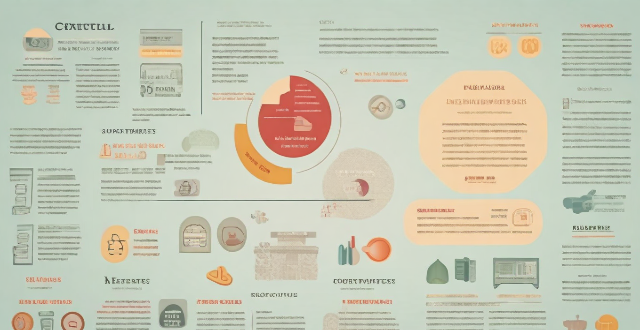
What is the GDP and why is it considered a crucial economic indicator ?
GDP is a crucial economic indicator that measures the market value of all final goods and services produced by a country in a specific time period. It serves as a measure of economic activity, national wealth, and a benchmark for international comparisons. GDP also impacts financial markets, reflects the standard of living, influences global perceptions, and drives employment opportunities. However, it should be considered in conjunction with other indicators for a more holistic understanding of an economy's health.